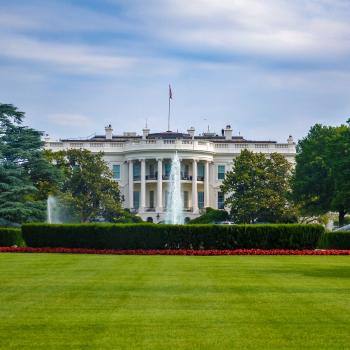
This is the second installment in my series of notes from 17th and 18th century New England election sermons (see the first post here).
In 1765, it was Andrew Eliot‘s (1718-1778) turn to preach the annual sermon in Boston on election day, this time before Francis Bernard who, unlike Governor Shirely, was very unpopular in the Bay Colony. (Eliot’s sermon preached at the day of execution of Levi Ames in 1773 is also worth reading.) By way of brief biography, Eliot was one of the most esteemed clergymen of of Massachusetts during his lifetime. Like most congregationalist pastors of the period, he was a graduate of Harvard. He went on to pastor the New North Church in Boston, a post which he valiantly manned even through the siege of Boston (1775-1776). (This Eliot is of the branch of Eliots that emegrated to New England besides the famous John Eliot of Roxbury (1604-1690), who was known as the apostle to the Wampanoag.)
Having first served as the governor of New Jersey (and later the Bahamas), Bernard was appointed to the same office in Massachusetts. By all accounts his reputation was one of harshness and intractability. The legislature resorted to obstruction out of frustration with Bernard’s obstinate administration.
In 1768, in response to protests against the Townsend Acts, Bernard stationed troops in Boston. Even after he was recalled to London, he acted as advisor on colonial affairs and was responsible for stoking the flame that eventually erupted in the Boston Tea Party of 1773 (though, to be fair, his predecessor, Thomas Hutchinson, had done a good job of that already). From the beginning, Bernard had been able to muster little patience for the provincials he governed and took it as a personal affront that he was not more respected by the citizenry of New England for his military service in the French and Indian War on behalf of New Jersey (of which he probably thought too highly). Irritable and vain best describe his temper. The interests of the people did not rule his heart.
***
Bernard’s contentious terms in office, however, cannot be inferred from Eliot’s election sermon. According to custom, Eliot began his oration with a review of certain foundational elements of government. 1 Chronicles 12:32 was his primary text: “And of the children of Issachar, which were men that had understanding of the times, to know what Israel ought to do, the heads of them were two hundred; and all their brethren were at their commandment.”
Eliot begins,
“According to the original constitution of the Hebrew polity, ‘each tribe was under it’s own proper and distinct government; and order’d it’s affairs by it’s own princes, heads of families, elders and courts.’ At the same time, there was a union of all the tribes, the whole congregation had a right to meet together, either personally or by their representatives, to consult the common good and the prosperity of the whole.”
Again, we see (as with Daniel Lewes) the emphasis on the common good and prosperity of the commonwealth connected to both the form of government and the rulers themselves.
Eliot then quickly outlines David’s anointing from God and confirmation by the people and, finally, inauguration as king by the tribes of Israel Hebron, restoring tranquility to their once fractured union after the death of Saul. The quick mention of this process of David’s anointing and confirmation was important to Puritan political theorists of the period. It indicated the role of the people in bestowing power upon rulers (as mentioned in the prior post). This was not to invest the people with power as such, but rather to give them a God-appointed part to play in delivering power to those appointed by God to rule. It is also significant, from the same perspective, that David is first anointed by the prophet, then affirmed by the elders, and finally, embraced by the people. God, the church, lesser magistrates, and the populace all have a hand to play in this process. In this way, 1 Samuel served as a template for political process to the Puritans of New (and old) England. Reference to it pervades their political commentary, especially in the 17th century.
Returning to Eliot’s text: The sons of Issachar are given pride of place in the text, as “men that had understanding of the times.”
“You are told the good effect of their wisdom and prudence, there was an entire union between them and the rest of the community. They who were in government were possessed of talents which qualified them for their trust, and their brethren were so satisfied of their prudence and integrity, that they reposed an entire confidence in them, and submitted to their authority without murmuring or opposition.”
“You have here the model of a happy state: What a prospect of peace and lasting prosperity, where rulers are wise and good, and the people are quiet and submissive!”
Taking this “happy state” as the exemplar, Eliot endeavors to demonstrate the character of the good ruler and, subsequently, to identify the concomitant duties of subjects.
From the start, Eliot grounds the ruler’s duty in the pursuit of the common good. That is the ruler’s chief purpose.
“If the public good is the great, the only end of magistracy; it follows that they only are worthy to be entrusted with the powers of government, who know what the public interest is, and are capable of advancing it. The heads of every community should, like the heads of Issachar, ‘have understanding of the times, to know what Israel ought to do’.”
“This character supposes, that rulers have a good degree of wisdom and knowledge [sic]—That they are particularly acquainted with the constitution of the country they are called to govern— That they are men of virtue and religion— And that they have prudence to conduct affairs in seasons that are critical and alarming.”
Resurgence of common good talk of late has been a welcome sight. That the concept seems to amorphous and impractical to modern people is a sign of how far we have drifted from Eliot’s day (and the classical thought that still undergirded their own) when the invocation of the common good would not have been met with furrowed brows.
If the common good is the ruler’s chief aim, then competency and prudence are his threshold qualifications. “If men were not wise before, they are not like to become wise by being placed in a station of eminence.” That is, candidates for office must prove themselves trustworthy and wise prior to taking office. Good will and earnestness is no substitute for knowledge and wisdom, competence and prudence:
“If such magistrates mean ever so well, yet they know not how to execute their good purposes, and their administration is like to be a series of the most fatal errors. If they depend on others to manage the affairs of government, the event will not be better. Men of weak minds can seldom bear the checks and counsels of plain honest men, who know not how to disguise the truth, or to speak that which they do not think in their hearts. Parasites and flatterers easily gain their favor, who will sooth their vanity, and accommodate themselves to their foibles. And the state of such a people is often worse than where rulers are men of capacity, even tho’ they are very deficient in their principles of action.”
What’s more, the wisdom required to rule is a particular sort. It is knowledge and use of the “art of governing,” says Eliot. Someone may be an accomplished philosopher or mathematician, but this does not qualify them to rule. Those lacking this art will judge poorly and legislate wantonly because they are ill acquainted with the ways of men and the needs of a nation.
Eliot also acknowledges that rulers are likely to be surrounded by enemies. “The rulers of a people are seldom so happy as to please all who are under their authority: They have often personal enemies; or crafty and ambitious men find fault with government because they are not in place.” The art of governing requires that rulers be “wise as serpents as well as harmless as doves to counterwork the machinations of such men, to give no occasion of offence to those who seek occasion, or to prevent the bad effect of the misrepresentations they will industriously spread.” The same principles also apply to diplomacy with foreign nations, which Eliot views in essentially realpolitik terms (if not quite to the level of a Cardinal Richelieu).
Other requirements for the job of ruler, per Eliot, include: 1) the ruler must look not only to the immediate needs of his people but also to posterity. In almost Burkean fashion, Eliot implores rulers to consult “the good of distant generations.” An accomplished ruler, “leaves as little as possible for them to correct, and as far as human wisdom can, lays his plans, not meerly [sic] to keep things quiet while he is on the stage, but that the happiness of his country may be of long duration, may be perpetual.”
The necessity of a forward-looking gaze is evident to a ruler if he is “sensible how much the present times are affected by the transaction that are past, and the precedents that have been established.” And so, “He bears on his mind, that his administration is like equally to affect those that follow, and endeavours [sic] to take the whole interest of his country in view, the future as well as the present.” Notice that, for Eliot, it is not incumbent on the present ruler to correct for past follies. Rather, he is to learn from the past, recognize his own potential for the same failings, and work to ensure that he does not repeat them.
Perhaps more obviously, 2) a ruler must be intricately acquainted with the constitution of his country. By this, of course, Eliot has the structure of government and its norms, customs, traditions, and fundamental law in mind, not a bill of rights.
“Reason we say dictates that there should be government; and the voice of reason is the voice of God. But what form of government they will be under is left to the choice of those who are to be governed. God has never determin’d [sic] this.”
But Eliot realizes that each new administration does not reinvent the wheel. The form and style of government is inherited, even if the form of the same is up for debate in the abstract.
“But whatever form of civil government men have chose [sic], there are certain constitutions, which are the basis and foundation of the state, and which are obligatory on those who govern, as well as those who are governed. These constitutions are a sort of fundamental laws, which cannot be violated without the greatest danger to a community. When either part attempts to invade the rights of the other, it usually produces convulsions, which sooner or later overturn the state.”
Eliot continues,
“It is necessary they who are in authority should be well acquainted with these fundamental laws; they ought to make them one main part of their study; and should not without the utmost necessity depart from them. If such a strict adherence to the constitution is sometimes attended with inconveniences; yet a departure from it will be attended with much greater.”
This paragraph in particular is worth deliberate consideration at our present moment when (as mentioned in the last post) one segment of the electorate proposes complete constitutional overhaul and/or radical departures from unofficial, though not unimportant, norms of governance—norms that extend beyond expectations of civility and decency.
This, however, does not mean that constitutional change is never allowed, only that any proposed change must be considered methodically, enacted cautiously, and then only for justifiable reasons (viz., the safety of the people). In some sense, any change must coincide with the spirit of the people, their traditions, history, and aspirations.
“I will not say, that they who are in government may not propose an alteration in the constitution, when they see manifest inconveniencies; every member of the state may do this; and there may be extraordinary cases wherein it may be necessary to deviate from common rules; in such cases the safety of the people is to be preferred to every other consideration. But no wise ruler would desire a general power of dispensing with the laws; nor is it possible to proceed with too much caution in making any great alteration in the civil constitution of a state; especially when it has been long established, and the wisdom of ages has been employed to confirm it.”
In short, civil rulers are to exhibit restraint. In the end, attempts to engineer de novo a faultless civil order are folly. (This recalls the points made by Lewes as to constitutional fealty and the maintenance of public order.)
“Where there seem to be defects, their remedy may often prove worse than the disease; and by attempting to guard against one inconvenience, we may open the way to a great many which we do not now foresee. When a constitution is essentially bad, rulers & every one else ought to run every risque [sic] to make it better. But where the constitution is tolerably good, it is generally the wisdom of those in power, to maintain a sacred regard to it themselves; and to endeavour that it may not be violated by others… When a humour of changing once begins, no mortal can tell where it will end.”
More practical advice from Eliot:
“In free governments people are apt to feel much quicker. To touch their liberties is to touch the apple of their eye; every attempt alarms them, makes them jealous of further designs, and often throws them into the hands of factious demagogues, who hate government, and are ever watching for opportunities to embarrass public measures, and to introduce anarchy and confusion.”
It is imminently important, then, that a ruler be cognizant of “where power ends and liberty begins.” (New Englanders were always tenacious of their liberties.) Put another way, rulers must know well their own people. This is as much practical as it is considerate. Certain polities in certain times could handle more radical change, constriction of some liberties whilst not other, and so on. No populace is alike. It is up to the ruler to be attentive enough to have his finger on the pulse of the people. This is not to imply demagoguery or self-interested, disingenuous pandering. It is rather to say that intimate care begins with intimate acquaintance.
***
Eliot, like his contemporaries and forbears, held that rulers must be “men of religion and virtue.” This, for several reasons, not least of which being that no man of any condition is more tempted by power than those who, in God’s providence, are selected to rule over other men. Eliot is worth quoting at length on this point:
“If there is no regard to God or the rules of virtue, wisdom degenerates into cunning, and rulers instead of endeavouring to know what Israel ought to do, only consider what they have to do themselves; instead of aiming at the public good, they consult only what is like to promote their own private interest, support their administration, and continue them in power. The selfish passions will have the dominion; and men will sacrifice conscience, and fell their country, to carry a favourite point, or gratify their vicious inclinations. The interest of such rulers, or what they imagine to be their interest, presently becomes separate from that of the community; of consequence they are obliged to make use of every art, to keep the people quiet; to make them insensible of their infelicity, or to compel them to bear it; to put a false gloss on their flagitious actions, or to secure a powerful party, who will support their measures, and be the instruments of their iniquity. They will choose those for their companions and counsellors, who will flatter their vanity, feed their avarice, or provide for their pleasures.”
That being said, Eliot clarifies what he means by “religion.”
“I intend something more than an external shew [sic], or a mere appearance of goodness. Hypocrisy is not only a character most detestable to God, but it makes a man more extensively mischievous to society. His sanctimonious pretences [sic] procure him the esteem and confidence of his brethren, by which means he has it in his power to deceive them, and to betray their interests… The greatest prodigies of wickedness have been those who have put on the guise of religion.”
Eliot further qualifies his intent in saying that rulers must have religion and virtue:
“Nor do I call it religion to contend for a few little rites and ceremonies, which are of no importance in themselves, and will not make men either wiser or better… Much less is it religion to invade the rights of conscience, and to inflict pains and penalties on those who are not of the magistrates sentiments, or presume to dissent from the principles established by law.”
What Eliot has in mind, then, as he demonstrates at length in the sermon, is a sincere Christian. A ruler, per Eliot’s standard, should be of that “religion which Jesus Christ taught.” He should be “purified in some measure from those corrupt principles,” that is, sanctified. He should “heartily submit to Christ as his prince and saviour.” Only the “Christian temper, which is produc’d [sic] by the Spirit of God” can fortify a ruler against the temptation of power, self-interest, and demagogy. Further still, Eliot maintains that only a genuinely Christian ruler can truly grasp the public interest, the common good. A Christian ruler offers the greatest certainty this side of heaven that the magisterial office will be discharged with affection for the people and honor to God.
But, nevertheless, Eliot is something of a realist in that he knows every ruler (maybe even most) will not satisfy this qualification.
“I own there are other principles which may have very salutary effects. There is in some men a certain benevolence and greatness of mind, which leads them to do many worthy deeds, that others perform from a principle of religion. There are remains of conscience in men, who cannot be denominated sincere disciples of Jesus Christ. Even their ambition and self-interest may prompt men to actions which are greatly beneficial to the community, and to discharge the trust reposed in them with honor and fortitude.”
And again,
“I am far from supposing that religion is the only thing to be regarded in a ruler. The most religious character will appear contemptible in a public station, if there are not other accomplishments: But whatever qualities a man has, it can by no means be safe, to entrust our lives, our estates, our liberties, every thing that is dear and valuable, to one who evidences by his conversation, that he has no regard to God, and is destitute of virtue and goodness.”
What are “other accomplishments”? Since the “end for which God has placed men in authority is that they may promote the public happiness,” that is, the common good and ordered liberty, prudence in administration and maintenance of order is of paramount importance.
“Another accomplishment very necessary for a good ruler, is prudence to conduct affairs in seasons that are critical and alarming. Such a season it was in Israel when Ishbosheth was slain.”
“Affairs in a kingdom or in a province are sometimes brought to a dangerous and important crisis, from foreign enemies or internal tumults; from the mistakes of those who wish them well, or the intrigues of designing men; from their own vices and follies, or the wickedness of others. In such a critical situation, the friends of a people are called to arise, and to exert themselves to save them from impending ruin… A state cannot be sunk so low as to exclude all possibility of emerging and again flourishing. There have been so many instances of the interposition of heaven, in times of the greatest extremity, that it is unreasonable to despair, when there are the most threatening aspects.”
“Those of superior character ought to have superior steadiness, instead of determining that nothing can be done, they ought to enquire what is to be done; what they can do themselves, and what Israel ought to do… This is a talent very different from that wisdom which is profitable to direct in a common state of things. A man may be a good pilot in a moderate gale, who can do nothing in a storm. Some men who would make very good rulers in a time of prosperity, are quite unfit to lead in times that are intricate and perplexed.”
Eliot reminds his listeners that, whatever wisdom and industriousness exhibited by a leader, and though “frugality, temperance, and industry, are of necessity, nothing will lift a people out of crisis besides public virtue and “fear of God and obedience to his law,” and this is the responsibility of all citizens.
Having surveyed the character of the good ruler, Eliot admits that “It is not to be expected, in the present imperfect state, that rulers will be free from mistakes or faults; whoever looks for such a behaviour from any man or from any set of men, will undoubtedly be disappointed.”
“But though you may not expect a perfect character, yet the great author of nature, whose tender mercies are over all his works, “has thought fit to mingle from time to time among the societies of men, a few of those on whom he is graciously pleased to bestow a larger proportion of understanding and integrity, than is given in the ordinary course of his providence to the sons of men.”
These are the duties and qualifications of the good ruler, but what of the good subject? There Eliot is not silent either.
“The duty of rulers and subjects is mutual; rulers ought to love their people and to seek their welfare; and the people on their part, ought to be subject; to the higher powers, to obey magistrates, and to submit to their lawful commands, both are necessary to the public happiness.”
At the same time,
“When [rulers] improve their power to contrary purposes, when they endeavour [sic] to subvert the constitution, and to enslave a free people, they are no longer the ministers of God; they do not act by his authority; if we are obliged to be subject, it is only for wrath and not for conscience sake, and they who support such rulers betray their country, and deserve the misery they bring on themselves.”
Of course, the line between submission and resistance is difficult to draw.
“I am sensible, it is difficult to state this point with precision; to determine where submission ends and resistance may lawfully take place, so as not to leave room for men of bad minds unreasonably to oppose government, and to destroy the peace of society. Most certainly people ought to bear much, before they engage in any attempts against those who are in authority; they ought to consider their rulers as frail and fallible men, who are liable to mistakes and faults, when their general aim is good and right; they should overlook their errors, and even their vices, if they are not such as tend directly to overturn the state, and to bring distress and ruin on the whole community. Better a particular person, yea many individuals should suffer, than to encourage civil broils and a public disturbance.”
In Eliot’s estimation, the default posture of citizens is to bear much, to be slow to anger, if you like. Like their rulers, they are to practice restraint as well. The tipping point is twofold: 1) when the motives of rulers are demonstrably impure and detrimental to the order of the state. In that case, their errors and vices should be overlooked. But 2) in the case that said errors and vices and motives “tend directly to overturn the state” and disrupt the tranquility and order of the whole community, then resistance is justifiable. This harkens back to the emphasis placed by Eliot on the duty of rulers to uphold and defend the constitutional order.
Eliot perceives that citizens have an intuitive perception of these things. They know when both their liberties and submission to authority are being well respected, when public policy tends toward the common good, even if they cannot fully articulate it without a sense of arbitrariness. “Public happiness is easily felt.” Citizens know when their rights and privileges are being preserved, when “the laws of the land have their course… when no unreasonable burthens are laid upon them,” and when they are treated with impartiality, “tenderness, and affection.” On the flipside, they know too when the disposition of their rulers runs to the contrary.
The relationship between ruler and subject is reciprocal. When the common good is pursued, rights are respected, and the constitutional order preserved, when the ruler does his duty, then his authority is not challenged.
“But where men are grosly [sic] of a contrary character, and pervert their power to tyrannical purposes; submission, if it can be avoided, is so far from being a duty, that it is a crime. It is an offence against the state of which we are members, and whose happiness we ought to prefer to our chief joy. It is an offence against mankind, whose rights we meanly betray. It is an offence against God, who is good to all, and who has appointed government for the welfare and happiness, and not the destruction of his creatures.”
Eliot closes his discourse with some obligatory, laudatory remarks about the British monarchy and the colonial government, calling them virtuous and dutiful all. Clearly, in 1765, Eliot did not discern a need for rebellion. New England had endured worse, he said.
“Time has been, when even darker clouds hung over the British colonies than those which now threaten us; and the God of heaven has appeared and dissipated them. His arm is not shortned [sic] that he cannot save, his ear is not heavy that he cannot hear. The friends of Zion will not cease to pray, that our rulers may be lead in a safe and plain path; and we trust they will themselves implore the direction and assistance of him, who giveth wisdom to the wise, and knowledge [sic] to them that know understanding.”
Here we see the remnant of the New England tradition of the jeremiad, so colorfully remembered by Perry Miller in the second volume of The New England Mind. By the time of Eliot, preachers of the northeastern colonies had, for over a century, implored men to look inward to their own spiritual condition and sinfulness when external affairs took a turn for the worse. In times of war, plague, and felt encroachment on their liberties, New Englanders were commanded from the pulpits to search their hearts for indwelling sin and to repent thereof. The general presumption, at least at first, was that pervasive sin within the populace brought on calamity and oppression. Though it could be said that, at times, the New England clergy over did it in this regard, American evangelicals could do with a good dose of this from time to time.
In almost any given situation, the real crisis is not the absence of truly religious, virtuous rulers, but the loss of public virtue writ large, a fact that, in a democracy, is reflected in the rulers, not enacted by them. “[A] community who are so lost to public virtue, are nigh to destruction,” says Eliot. He pleaded with the magistrates of the General Court and the governor to institute public moral reform. He instructed the laymen in his audience to “lead quiet and peaceable lives in all godliness and honesty,” and to not devolve into “unreasonable opposition” to their leaders. Finally, he added, “It would be well, if both rulers and people would consider the brevity and uncertainty of human life, and that account which they must all give of the things done in the body.”
***
Thus far, Andrew Eliot. What are we to learn from his instruction from an election day over two centuries ago? Five can easily be identified (like last time, bolded above).
First, the common good should be the chief aim of all civil rulers, according to their capacity and authority. Rather than wax eloquent about the common good I’m going to provide here some links to recent article on the subject (that have been helpful to me), each approaching it from a different angle. These will at least spark the reader’s interest. (And I will return to this topic again in this series.)
C.C. Pecknold, “French, Ahmari, and the Common Good.”
C.C. Pecknold, “False Notions of the Common Good.”
Adrian Vermuele, “Beyond Originalism.”
Josh Hammer, “Common Good Originalism.”
Lee Strang, “The Role of Common Good in Legal and Constitutional Interpretation.”
Second, rulers must not be too fixated on the present; being prudent is not the same as defaulting to the immediately expedient. Rulers must consider in their policies the interests of the most vulnerable members of society, those already dead and those not yet living. That is, the traditions and history of a community must be respected. As with any living organism, such as a society is, change is necessary, a sign of life. But incremental change is not the same as wholesale reform. At the same time, whilst past generations must be respected, future ones must be planned for as well. Their interests should be placed above those presently living because the not yet born have no other voice to represent them. They are defenseless (and this is not just commentary on abortion).
The respect for the past and planning for the future goes hand-in-hand with intricate understanding of, and appreciation for, the constitution and fundamental laws of the country. I touched on this subject last time so I will not reiterate my thoughts here. But I must add that what is generally lacking today, to some extent on both sides of the political aisle, is a willingness to govern within the given.
The third lesson to be drawn from Eliot recalls the 1748 sermon by Lewes wherein reciprocal respect between governor and governed was emphasized. Similarly, for Eliot, a ruler should show restraint in his policies. He should not hastily and imprudently revamp society, its culture, procedures, norms, and laws. This surely gives rise to anxieties in the people and can very well, therefore, lead to unrest. But the duty to restraint is reciprocal. Citizens too should be willing to bear much inconvenience and disruption. They should not be quick to rebellion but rather, by their godly submission and quiet lives–a thing that does not, as Eliot makes clear, imply stoic detachment from political affairs nor the endurance of gross violations of public trust and the political order–make the yoke of governance light. This reciprocal restraint, which I’ve already connected to Lewes’ reciprocal respect and trust, also implies reciprocal prudence in political life generally. That Lewes and Eliot understand these duties as reciprocal is not surprising. As Perry Miller pointed out in Errand into the Wilderness, the Puritan conception of society was that of an organic unit. Nothing is disconnected. If one part of the whole is wayward the rest shall soon follow. Duties, then, are necessarily mutually reinforcing.
Nevertheless, as stated above, restraint is not limitless. “When [rulers] improve their power to contrary purposes, when they endeavour [sic] to subvert the constitution, and to enslave a free people, they are no longer the ministers of God.” If a ruler purposefully and maliciously endeavors to undermine the fundamental law and constitutional order of a society, then he has exceeded the bounds of his God-ordained office. But again, Eliot’s caveat is that, normally, citizens should be willing to bear much and opt for restraint.
Fourth, a ruler should be virtuous and a follower of true religion, not merely external moralism. Further, he should foster public morality (and support the true church in its work, protecting her doctrine and worship, whilst also submitting to her moral judgments).
This is, of course, general assumption to be found in all Puritan treatments of politics. Importantly, for our purposes, Eliot acknowledges that not all rulers will live up to this standard. Not every nation will be one fed by the Gospel and properly called a member of Christendom. Even then, not all is lost. For,
“other principles which may have very salutary effects. There is in some men a certain benevolence and greatness of mind, which leads them to do many worthy deeds, that others perform from a principle of religion. There are remains of conscience in men, who cannot be denominated sincere disciples of Jesus Christ. Even their ambition and self-interest may prompt men to actions which are greatly beneficial to the community, and to discharge the trust reposed in them with honor and fortitude.”
This is good news for us. Neither candidate on our presidential ballot embodies the Eliot’s ideal delineated above. What we must look to, then, is how nearly each candidate, their administration, policies, aspirations, and record, come to the paragraph just quoted (and the other principles already mentioned). Benevolence, greatness of mind, magnanimity, patriotism, restraint, prudence, a conscience still sensitive (to whatever extent) to the leadings of the natural law implanted within them (in the synteresis).
Even self-interest and ambition may benefit the community. At this point in our country, that last sentence may be the most relevant. Which ambitious, self-interested candidate most benefits, through said self-interest and ambition, the country? And maybe, which candidate still evidences some semblance of sensitivity to the moral law of God implanted in every man? And it may even be out of self-interest and ambition that one of the two candidates, through his policies, fulfills the moral law, perhaps even unwittingly. That, I think, is the types questions, the level of moral analysis, that should be asked at present. Pragmatism, in the short term, is not antithetical to Eliot’s assessment here.
***
If no ruler perfectly exemplifies Christian virtue and true religion it can be doubly certain that no populace does. Generally speaking, the former is a reflection of the latter. Especially in democratic polities, rulers can serve as a mirror staring back at you. See something you don’t like in the incumbent or the challenger? Time for some self-reflection, repentance, and confession. That’s what Eliot would tell you.
Which leads us to the last point, or imperative rather, from Eliot: the presumption of repentance when experiencing personal or public ills. The visitation of calamity should yield a concomitant visitation of repentance. To be sure, the congregationalist ministers of the 17th and 18th centuries would have classified our current political landscape as one of calamity and judgment. No populace experiencing this level of disunity and civil unrest could be classified otherwise from the vantage point of centuries past.
Image credit: @ronnikurtz/Unsplash












